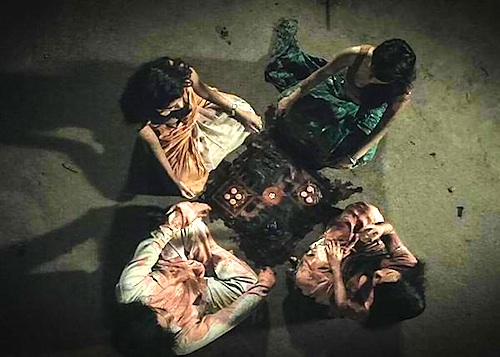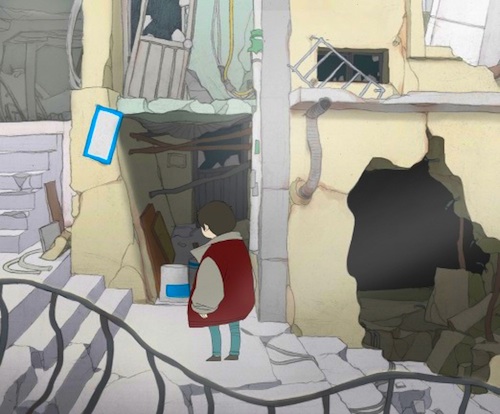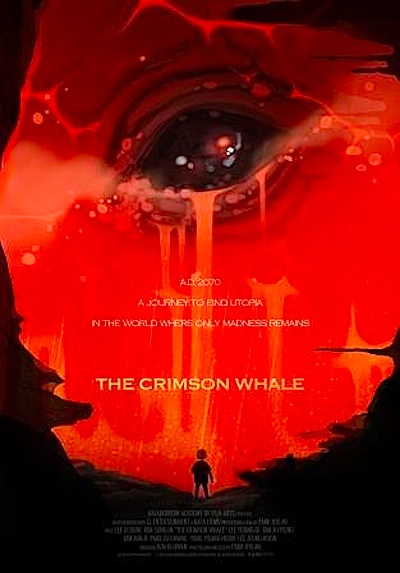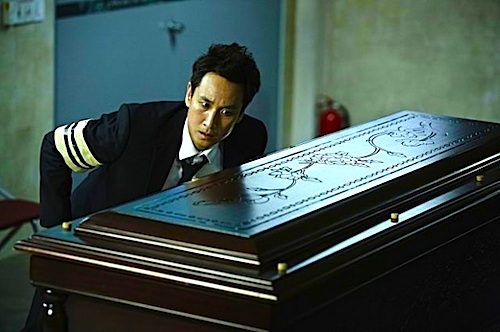By Joe Bendel. You have to give credit to these four hard-partying Kolkata club kids. When they stumble into a Hostel-like hotel, they have the good sense to get the heck out of there. Unfortunately, it turns out to be a case of out-of-the-frying-pan-into-the-fire in Q & Nikon’s Ludo, which screened tonight during the 2015 Fantasia International Film Festival in Montreal.
Ria and her BFF Payal are girls who just want to have fun. They have hooked up with two slicksters who just want to have sex. Ria and Payal are not opposed, at least not after some drinking and dancing, but finding a motel that is no-tell enough in socially conservative Kolkata is a tricky proposition. After scrambling out of the aforementioned suspicious love hotel like Shaggy and Scooby, they resolve to just sneak into the mall after closing. The air conditioning is the key selling point.
It is all good, clean fun for a while, until the four carousers realize they are not alone in the mall. They are sharing the space with two Grunge-ish evil entities who have one thing on their minds: blood. Just who are these malevolent beings? Q and Nikon are glad you asked, because most of the third act is dedicated to their backstory—and it’s a killer. It involves an ancient, sentient dice game that is profoundly evil, but fatally seductive.

Q and Nikon are two filmmakers, but grateful poster designers will never have a problem laying out their names on a one-sheet. Ludo’s jaded perspective on modern Indian life will come as no surprise to those familiar with Q’s banned opus Gandu. Nevertheless, even by horror film standards, it is an unusually dark film, in every sense of the word. It depicts the world as a predatory place, dating back centuries. While Q & Nikon are short on proactive recommendations, they seem to take perverse glee in giving the finger to polite Bengali and Bollywood cinema. There are no sentimental love songs here, but driving club music is certainly a prominent element of their cocktail.
The small ensemble, led by Subholina Sen, is sufficient to the task, performing at a level equal to what you might see in a typical Blumhouse film. Although it was probably shot on a shoestring, Devika Dave’s design team created some suitably creepy props. Q & Nikon also fully capitalize on their nocturnal urban settings.
Knowing the subversive cultural context of Ludo definitely adds to its enjoyment, but it is the energy and attitude that really hook viewers. It is a relatively straight forward narrative, yet Q & Nikon manage to upend several genre clichés. Enjoyably strange and gory, Ludo is exactly the adrenaline shot to the heart South Asian horror cinema needs. Recommended for fans who want to see something different, Ludo screened tonight (7/18) as part of this year’s Fantasia.
LFM GRADE: B+
Posted on July 18th, 2015 at 9:59pm.





